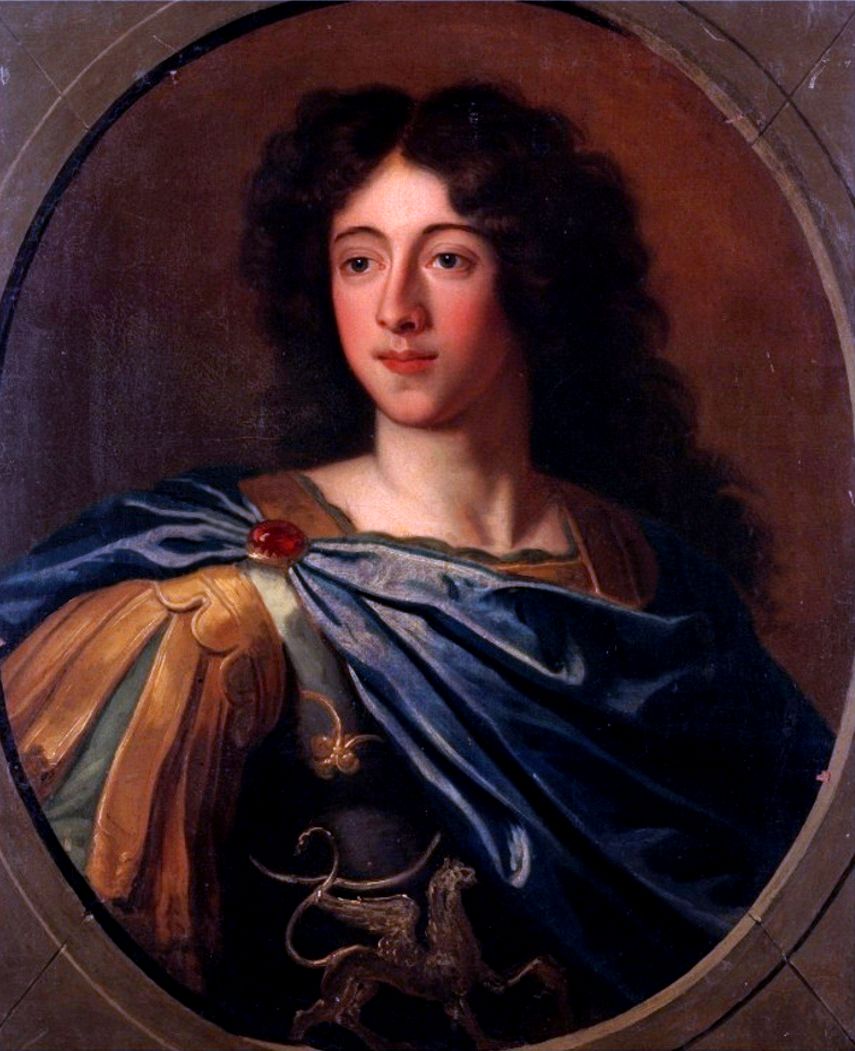François Louis de Bourbon had been married to Marie Thérèse de Bourbon on 22 January 1688. Although the bride was immensely fond of - even in love with - her new husband, she would soon find their marriage to be very trying.
In contrast, François Louis was not the least bit interested in his new wife. The Prince de Conti was bi-sexual; he was well known to have a liaison with Louise Françoise de Bourbon but was also involved in several homosexual affairs.
The odd thing about François Louis was that - despite his own lack of interest in her - he was immensely jealous of his wife. Perhaps his own infidelities made him suspicious but according to Elizabeth Charlotte of the Palatinate, there was "no cause" for his suspicions. However, there appears to have been doubts as to the full extent of the Princesse de Conti's faithfulness. Andrew Haggard claimed that she had affairs with both the Marquis de La Fare and Monsieur de Clermont - still, no other source backs this claim up.
 |
| Marie Thérèse |
On occasion, François' behaviour went further than mere suspicion. Madame noted that poor Marie Thérèse "never knew where she was to pass the night". Once his wife had settled somewhere, he would constantly send her from one place to another - and he had plenty of places to choose from. Besides their apartment at Versailles, the couple owned the Château de Chantilly and a hôtel in Paris. In itself should demands might not seem odd but he would insist on her travelling even if it was in the middle of the night. Legally, he was fully entitled to treat his wife as he pleased, so there was little to do by way of the law.
Apparently, François offered to duel the Prince de la Roche-sur-Yon because the Chevalier de Lorraine (lover of the king's brother) told him that Roche-sur-Yon was in love with the Princesse de Conti.
 |
| François Louis |
In 1709, François died but Marie Thérèse does not appear to have enjoyed her new freedom. Instead, her old love of her husband (unrequited as it was) still lingered and she was often seen weeping for him. Few people could understand this mourning for a husband who had never cared much for her. One good thing did come out of the demise of the Prince de Conti. His widow had become estranged from her own children but was finally reconciled with them once their father was gone.

No comments:
Post a Comment